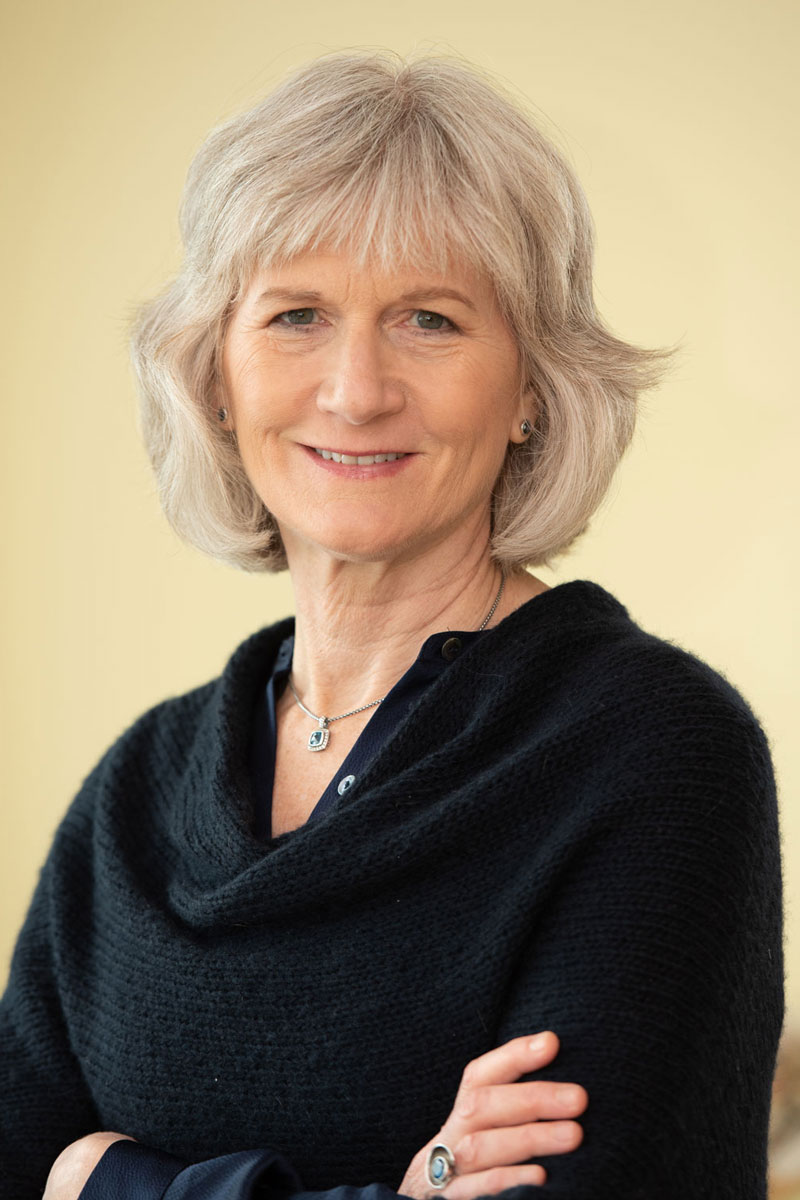
Megan Sykes, MD
About Megan Sykes, MD:
Megan Sykes’ research career, during which she has published >440 papers and book chapters, has focused on hematopoietic cell transplantation, organ allograft tolerance induction, xenotransplantation tolerance and Type 1 diabetes. Dr. Sykes has developed novel strategies for achieving graft-versus-tumor effects without graft-versus-host disease following hematopoietic cell transplantation (HCT). She developed an approach that has been evaluated in clinical trials of non-myeloablative haploidentical HCT whose safety and efficacy allowed trials of HCT for the induction of organ allograft tolerance, allowing intentional achievement of tolerance in humans for the first time. Dr. Sykes has dissected the tolerance mechanisms and pioneered minimal conditioning approaches for using HCT to achieve allograft and xenograft tolerance.
Her work on xenogeneic thymic transplantation for tolerance induction has led, for the first time, to long-term kidney xenograft survival in non-human primates. She has extended the HCT approach to the problem of reversing autoimmunity while replacing destroyed islets of Langerhans in Type 1 diabetes. She has developed novel “humanized mouse” models that allow personalized analysis of human immune disorders and therapies. Dr. Sykes believes that a mechanistic understanding of manipulations used to achieve clinical goals is essential to the translation of these manipulations to the clinic. It is for this reason that she has consistently worked at the interface between basic science and clinical applications, and has been able to translate her research to new treatments for patients requiring bone marrow or organ transplants. Dr. Sykes is a Past President of the International Xenotransplantation Association, served as Vice President of TTS, has repeatedly served on TTS Council and is a member of the Institute of Medicine of the National Academies and of the Association of American Physicians. She has received many honors and awards, including the 2018 Medawar Prize.
In 2010, after 20 years at Massachusetts General Hospital and Harvard Medical School, Dr. Sykes moved to Columbia University to establish the Columbia Center for Translational Immunology (CCTI). The CCTI is a multidisciplinary research center whose scope includes transplantation (organ and bone marrow), autoimmune disease, tumor immunology, infectious immunity and basic immunology. Currently, the CCTI has a staff of >100 scientists and support staff, including 17 faculty members. Dr. Sykes' own laboratory program currently includes major projects in the area of xenograft tolerance induction in humanized mouse models; unique humanized mouse models for the analysis and treatment of autoimmune diseases, including Type 1 diabetes and rheumatoid arthritis (the “personalized immune” mouse); studies of lymphocyte turnover, chimerism and T cell trafficking in patients receiving intestinal and liver transplants; tracking of alloreactive T cells in human transplant recipients; and both pre-clinical and clinical studies of non-myeloablative hematopoietic cell transplantation for the induction of allograft tolerance.
Honors:
1991: American Cancer Society Junior Faculty Research Award
1998: Wyeth-Ayerst Young Investigator Award, American Society of Transplant Physicians
1999: Honorary Master of Arts Degree, Harvard Medical School
2002: Moses Baron Lecture, University of Minnesota, MN
2005: Elected to membership, Interurban Clinical Club
2007: American Society of Transplantation (AST) Basic Science Established Investigator Award
2007: Honorary Professorship, Wenzhou Medical College
2009: Distinguished Lecturer, American Association of Immunologists Annual Meeting
2009: Fellow, AAAS (American Association for the Advancement of Science)
2009: Martin Research Prize for Excellence in Clinical Research, MGH
2009: Erwin Neter Memorial Lecture, Association of Medical Laboratory Immunologists
2009: 8th Annual Catherine Tuck, MD Memorial Lecture
2009: Elected to membership, Institute of Medicine of the National Academies
2010: Elected to membership, Association of American Physicians
2010: TTS Roche Award for Outstanding Achievement in Transplantation Science (Basic)
2012 Pixie Campbell Memorial Lecture, 13th Annual Colorado Immunology Conference
2014: Award for Outstanding Achievement in Transplantation (Basic Science), The Transplantation Society
2015: Dean’s Distinguished Lecture in the Clinical Sciences, Dean’s Distinguished Lecture Series of the College of Physicians and Surgeons, Columbia University Medical Center
2016: Elected to membership The Practitioners Society, New York
2017: Elected to Honorary Membership, International Xenotransplantation Association
2017: Keynote Speaker, 8th Annual Retreat, Human and Translational Immunology Program, Yale University, New Haven, Connecticut
2017: Irene and Arthur Fishberg Prize for Significant Original Contributions to Internal Medicine
2017: Honorary Member Lecture, International Xenotransplantation Association, Baltimore, Maryland
2017: Charles G. Orosz Lecture, 18th Annual Great Lakes Transplant Immunology Forum, Madison, Wisconsin
2018: 26th Annual Meeting of the Japanese Society for Histocompatibility and Immunogenetics, Special Lecture, Hiroshima, Japan
2018: The CIS Rose/Fahey Founders Lecture, the Clinical Immunology Society Annual Meeting, Toronto, Canada
2018: Keynote Lecture, Harnessing Immune Metabolism to Treat Cancer and Other Diseases Symposium, Ann Arbor, Michigan
2018: Keynote Lecture, 18th Annual Meeting of the Federation of Clinical Immunology Societies, San Francisco, California
2018: The Medawar Prize for the Most Outstanding Contributions in the Field of Transplantation
2018: The Leslie Brent Award for the Best Basic Science Paper, “Effect of Ex Vivo-Expanded Recipient Regulatory T Cells on Hematopoietic Chimerism and Kidney Allograft Tolerance Across MHC Barriers in Cynomolgus Macaques” Published in Transplantation
2018: The 13th Annual Oscar Salvatierra Jr. Lectureship, Palo Alto, California
2019: The Stevens Triennial Prize for Original Medical Research that is Most Meritorious
2019: American Society of Transplantation/Astellas Research Grant Award
